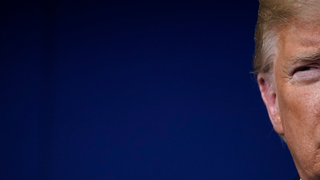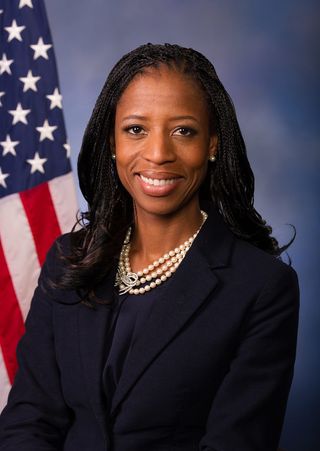Americans who last month fixated on the dynamics of a presidential primary and the excitement of playoff basketball have had a rude awakening in the last two weeks. The United States has now joined a virtual global quarantine, which threatens to upend the nation's strong economy and leave millions unemployed.
Years of partisan fighting and biased media coverage has clearly jaded Americans and undermined the credibility of politicians, making citizens question the seriousness of the outbreak.
The diagnosis of Utah Jazz basketball players Rudy Gobert and Donovan Mitchell was a wakeup call, initiating a cascade of cancellations and closures that started with the NBA, swept through other professional and collegiate sports, and landed in local schools, restaurants, department stores, casinos and bars. Many states and counties, including my own in Utah, have shuttered schools, closed restaurant dining rooms, and canceled public gatherings of more than 10 people. Though President Trump has only committed to a 15-day shutdown, experts say stopping the spread of Coronavirus could take months.
A vaccine capable of inoculating a world population is at least 12-18 months away. Some warn that social distancing measures will need to remain in place, to some degree, until that vaccine is available – a daunting prospect that would bankrupt millions of Americans, close businesses, and destroy jobs.
Unfortunately, however, years of partisan fighting and biased media coverage has clearly jaded Americans and undermined the credibility of politicians, making citizens question the seriousness of the outbreak. And at the same time, a president prone to exaggeration and hyperbole has undermined the administration's credibility. All of this has left Americans unsure who to believe in the critical weeks before the virus began to spread.
As the economic impacts pile up, the distrust between right and left threatens to undermine the cohesion required to mount an effective response. With Americans already sharply divided over the aggressive response to the virus, uncomfortable questions will continue to plague the country in the wake of a growing pandemic and a potentially devastating economic pullback.
As the economic impacts pile up, the distrust between right and left threatens to undermine the cohesion required to mount an effective response.
Already, Americans have begun to question the panic over a disease that has – thus far – led to fewer deaths than the 2009 H1N1 outbreak, which killed 12,000 Americans, infected as many as 89 million, and resulted in hundreds of thousands being hospitalized though with comparatively minimal economic impact.
In the weeks and months ahead, however, COVID-19 looks dramatically more dangerous and deadly. One Imperial College study predicted that not taking mitigation measures would lead to some 265 million Americans being infected and 2.2 million American deaths. Clearly, something needs to be done.
It's clear that the United States was not prepared for another pandemic, particularly a significantly more deadly one. Beyond the masks, gloves, and ventilators that are in short supply, federal bureaucrats at the Centers for Disease Control made an early decision to exclude private sector and academic institutions from the process of developing diagnostic tests. When the CDC tests proved to have a design flaw, there was no way to make up lost time. While President Trump acted quickly to remove regulations, enable the right to try experimental treatments, and fast track approval of diagnostic tests and vaccines, the administration is still trying to merely catch up.
The challenges ahead could not be graver, but unfortunately, in the age of a controversial US president and a consequential upcoming election, attitudes toward the virus have proven to be strongly influenced by the widening partisan divide. This makes sense when considering that politicians and pundits have immediately fixated on the blame game, working overtime to ensure ultimate responsibility for the crisis is pinned on political opponents. The American media has not fared much better: rather than investigating the critical testing shortage that has left Americans unable to get a definitive diagnosis, the media seems more interested in obsessing over what to call the virus, insisting a nomenclature that includes a geographic location is, for the first time, evidence of racism.
Where the blame for the missteps falls may have an outsized impact on the coming presidential election. Will voters blame President Trump for bungling the emergency response and losing the economic gains of the last three years? Or will they punish Democrats who they perceive used the crisis to score political points? At this point, all we know for sure is that America is very likely on the verge of a health and economic crisis that is far worse than we are prepared for and we will emerge from this challenge weaker if we prioritize blame and distrust over unity and action.






